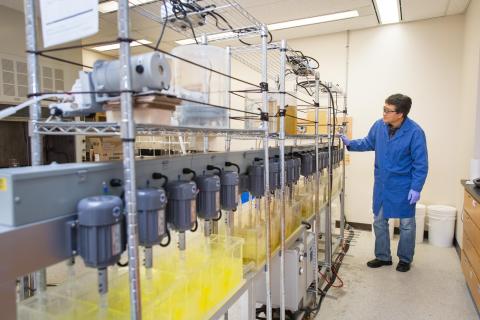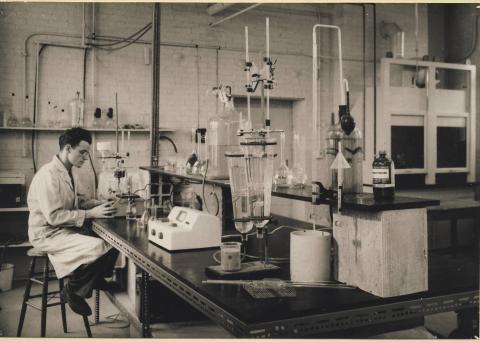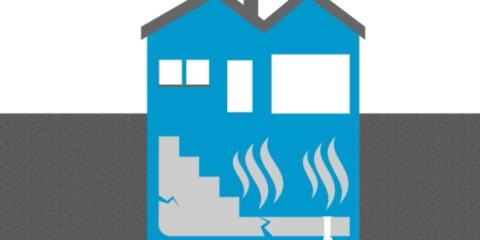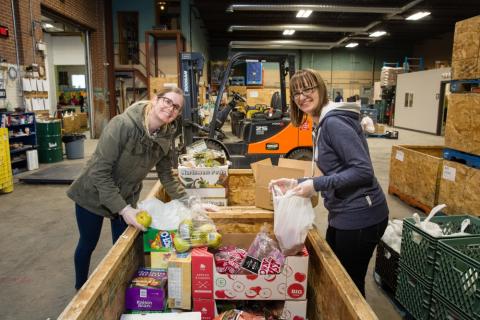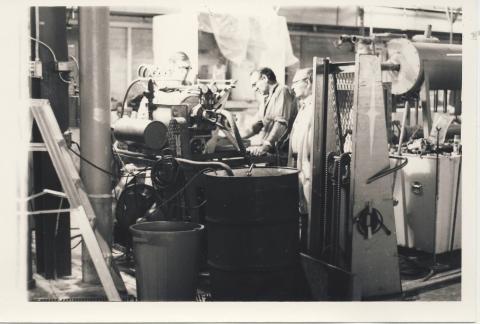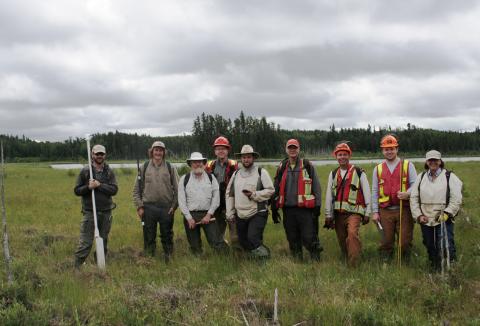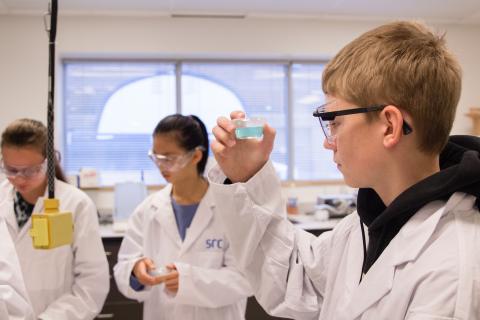Inside SRC
Most of us know that Saskatchewan is the world’s richest and largest uranium jurisdiction. But did you know that Rare Earth Elements (REEs) are often found within uranium deposits, making Saskatchewan...
Easy access to clean drinking water is something Canadians often take for granted because of the abundance of water sources, from coast to coast. But there’s a lot that goes into actually ensuring the water we drink is safe and clean, including testing.
Nineteen forty-seven was SRC’s first full operating year. The initial strategic direction for the company was to undertake applied research targeted at developing “the resources and economy of Saskatchewan.”
We know that wetlands, both in Canada and globally, store huge amounts of carbon. While we understand it’s important to store carbon, reduce CO2 emissions and mitigate climate change, we’re also aware that we need a greater understanding of how best to measure the carbon stored in wetlands.
Did you know that Saskatchewan has some of the highest rates of elevated radon in homes and buildings in Canada? Sandy Hutchison from Health Canada guest blogs about how people can protect themselves and their families from radon.
Energy is an intrinsic part of our daily lives, and it has become so common to simply make toast or coffee in the morning that we often forget how valuable energy is. For National Cut your Energy Costs Day on January 10, 2017, we are sharing seven ways to reduce your energy costs.
Employee volunteer programs (EVP) are an important way for businesses to create opportunities for its employees to participate in community initiatives. Learn why SRC provides paid time for employees to volunteer.
At the beginning of the 20th century, organized research, development and technological innovation were quite rare, but this changed with the advent of industrial research organizations. Read more about the evolution of SRC.
Jaz Gatin is an Environmental Biology student at the University of Saskatchewan and was also a student in SRC’s Aboriginal Mentorship Program (AMP). He shares his experience in the program working with SRC's Environmental Performance and Forestry team.
For this year’s Take Our Kids to Work™ day, we wanted to remind ourselves of what jobs and careers and work look like through the eyes of a young person. So we sat down with one of our ten students to get that perspective and share it with you.
